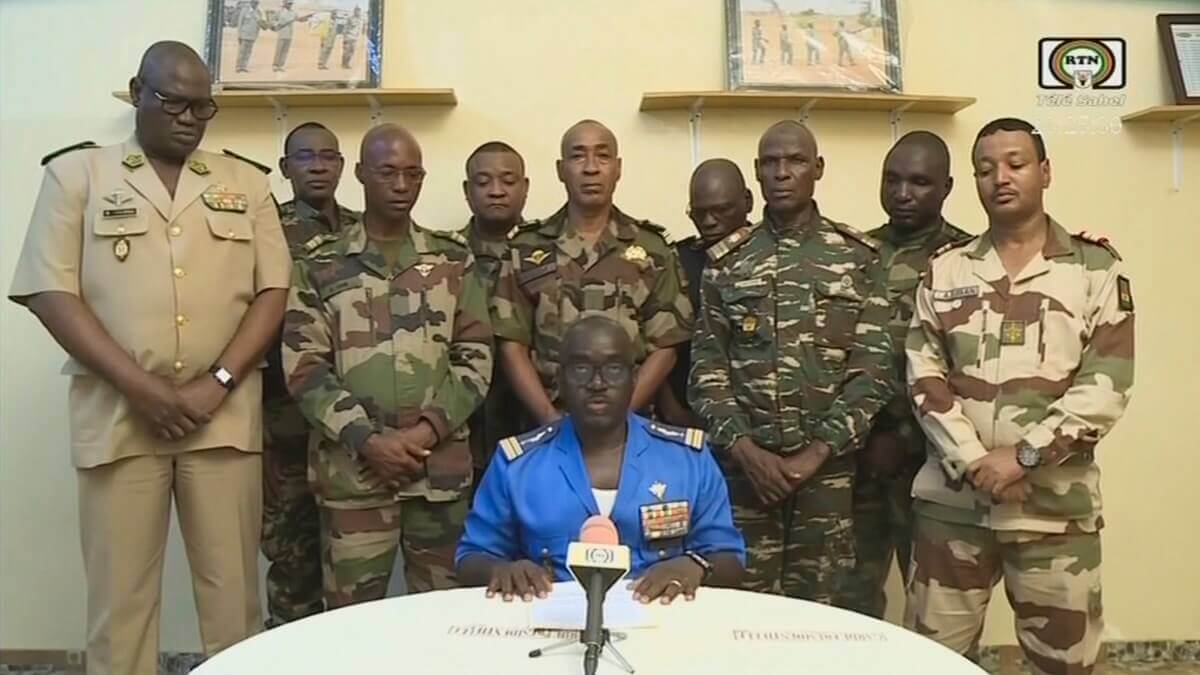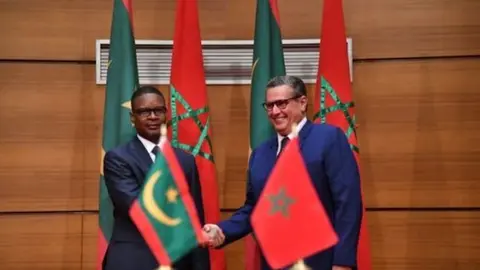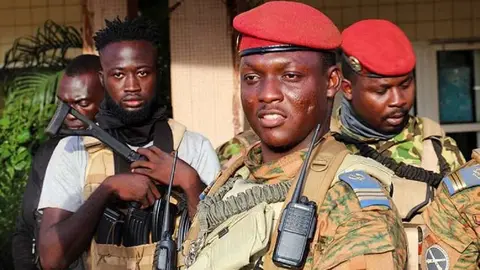Sahel and new military alliance against jihadism

The heads of the armies of Niger, Mali and Burkina Faso, which have been involved in several coups d'état that overthrew the established governments in order to establish military power, have now proposed an alliance to fight jihadism, a problem that is deeply rooted in the Sahel, a highly explosive and unstable area.
This is a major departure from the past, when other countries were relied upon to fight jihadist terrorism. Now these African nations want to take the lead in combating this problem and have greater independence in this regard.
A change in the way in which external forces were relied upon to confront jihadists. Various nations such as the United States, France and Spain have participated in contingents in the Sahel and in missions, for example, of the European Union, to maintain order and prevent the activity of terrorist and criminal organisations in the area.

Now, Niger, Mali and Burkina Faso have their respective military juntas that wield absolute power and are politically attuned to each other in order to stay in power, support each other and impose their own planning on the region.
In this regard, the commanders of the armies of Niger, Mali and Burkina Faso, which are part of the Sahel coalition, announced in Niamey the formation of a "joint force" to fight jihadist organisations launching attacks in the three countries.
The chief of staff of Niger's armed forces, General Musa Salah Bermo, said in a statement issued after a meeting with his counterparts in Niamey that "the joint force of the members of the Coalition of Sahel States will begin activity as soon as possible to meet the security challenges in our region". General Bermo said: "We are convinced that through the joint efforts of our three countries we will succeed in creating the conditions for common security".

Important step
These countries governed by military regimes have taken an important step. Consensus is complete throughout the central Sahel region plagued by terrorist attacks and criminal activity by gangs engaged in all kinds of illicit operations, including human trafficking.
These countries broke off relations with other partners such as France and the Economic Community of West African States (ECOWAS) that supported them in this fight against terrorism in order to form their own agreement among themselves and to seek other allies.
The new alliance reveals a change in the way of depending on external powers to confront the jihadists, and the shift from depending on France to betting on the role of new actors in the area such as Russia in defeating the extremists through the Wagner Group, a private military company at the service of the Kremlin that is in charge of helping local armies and training them in guerrilla activities, as has been pointed out by various analysts and prestigious media outlets such as Arab News.

France had great ascendancy over these countries, which were three former French colonies and which have now cut ties of dependence with Paris in order to move closer to new partners, including Russia.
Meanwhile, Russia, presided over by Vladimir Putin, has been in the spotlight in recent times for its belligerence taken to the extreme with episodes such as the invasion of Ukraine.
According to Arab News, several experts believe that Russia will oversee the formation and organisation of this force, which will legitimise its presence in these countries and clarify Russia's role, which had been somewhat obscure due to the Wagner Group's alleged military presence on the African continent.
After carrying out coups d'état in these countries, the military juntas consolidated their hold on power and have taken a drift towards seeking greater political independence in order to cut ties with past partners such as ECOWAS and, above all, France, a former colonial power in the region that had great influence over these countries. All this in order to move closer to other powers such as Russia, and even China, which has made many investments aimed at having more influence on the African continent.

Mutual interests
Both Russia and China may have significant business opportunities on the African continent, which has significant natural and mineral resources of interest to these nations that can provide various African countries with certain resources. Kester Kenn Klomegah, a researcher on African affairs, noted in a report published by Modern Policy that 'given the chronic instability in most of Africa and the strong interest in obtaining military equipment to address growing security problems, strong market conditions have been created for Russia that allow it to diversify its arms exports to Africa'.
"The lack of sufficient funds has led poor African countries to resort to a barter system, buying arms in exchange for access to mineral deposits and natural resources," said Kenn Klomegah.
One could speak here of a relationship of convenience between these African countries and powers such as China and Russia. Nations such as Mali, Niger and Burkina Faso would obtain this protection and military advice and supplies in the struggle to maintain security in the region, and the Chinese giant and the Russian power would be able to access important agreements to do business with certain resources. In the case of China, in addition to security, this would involve a significant investment in infrastructure and development in this part of the continent in need of a boost in this sense.

The Russian Foreign Ministry also clarified Russia's military-technical cooperation with African countries, which is primarily aimed at resolving regional conflicts, preventing the spread of terrorist threats and combating growing terrorism on the continent.
France withdrew forces from these three countries, former French colonies, and the gap is being filled by Russia and China to extend their diplomatic influence.
Moreover, Niger, Mali and Burkina Faso have already decided to withdraw from the G5 Sahel joint military force, organised to maintain security in the region with the support of international forces, and have also had problems with ECOWAS, which harshly criticised the fact that coups d'état are taking place in these countries in order to install authoritarian military governments. To this must be added the popular discontent in these countries in the face of a lack of resources and widespread poverty.










